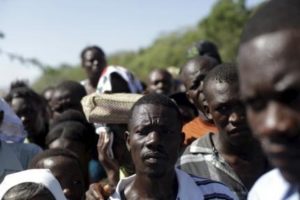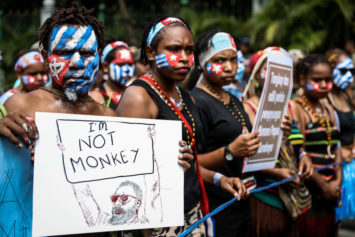
With a machete strapped to his waist, Adolfo is joined by others each day in a desperate effort to make a living. They cross the border into the wealthier Dominican Republic under constant threat of arrest or expulsion.
“I can make 200 pesos ($4.50) a day working in the fields there,” said the middle-aged Haitian as he swatted away a swarm of mosquitoes.
Dominican officials last month began implementing a controversial immigration program targeting Haitian migrants and Dominican-born people of Haitian descent.
The program centers on round-ups and deportations that have triggered concerns about a slow-growing border migration crisis in the poorest country in the Americas.
So far about 1,500 people have been deported at a pace of 50 to 100 per day, according to relief officials with access to records supplied by the Dominican government. The officials asked not to be identified because they were not authorized to discuss the number of deportees.
Thousands more have fled the Dominican Republic out of fear of arrest or harassment, scared by neighbors, bosses, coworkers and police or immigration officials.
More than 27 percent of those crossing into Haiti say they were born in the Dominican Republic, according to Amnesty International. But they lack documents to prove residency or citizenship, and many are undocumented immigrants who say they have lived most of their lives on the Dominican side of the border.
The Dominican Republic, which has a population of about 10 million, has long complained of illegal migration of Haitians, even as it benefits from a steady source of cheap labor for construction, agriculture and domestic work.
The Dominican government declined repeated requests for comment on its immigration crackdown. But the issue touches a centuries-old xenophobic nerve in the country, stemming from its occupation by Haiti in the early 19th century.
Four informal settlements have sprung up in southern Haiti for people affected by the deportations. They now house between 2,500 and 3,000 people, according to the Jesuit Refugee Service.
The Haitian government began a relocation program at one settlement camp, Tête à l’Eau, last month. But the program, including $30 in assistance for deportees, was suspended due to a lack of funds, according to Frantz Pierre-Louis, a top regional Haitian government representative.
A United Nations human rights official in Haiti, Gustavo Gallón, this week urged the government to establish health facilities and deliver drinking water to the camps.
Read more at businessinsider.com


